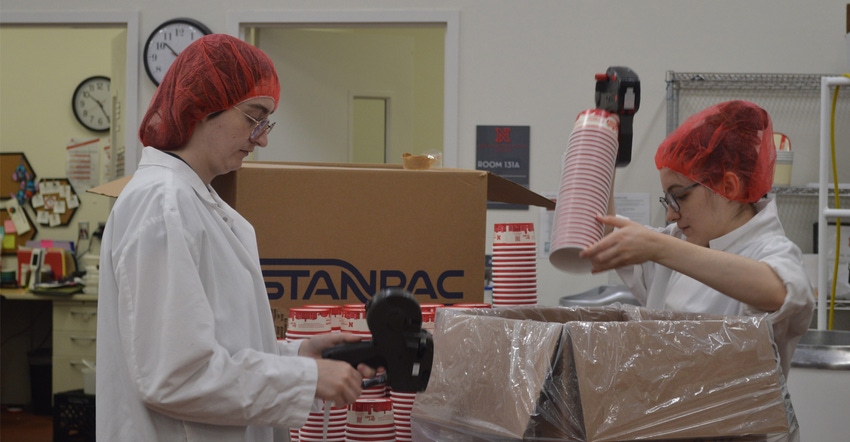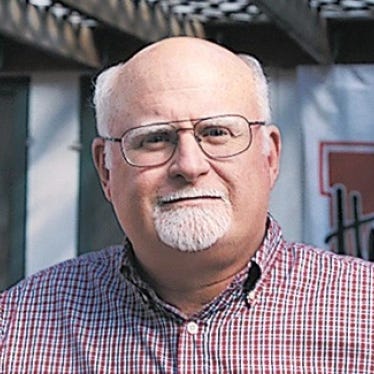
Creating a new food product can be a long and winding road filled with potholes. But the University of Nebraska-Lincoln Food Processing Center on the Nebraska Innovation Campus can pave the way for companies, big or small, and individual entrepreneurs with a host of services to test a product or get one to market.
FPC, which began in 1983 on UNL’s East Campus, is now one of the state-of-art facilities on the Innovation Campus. It is housed in the renovated Industrial Arts Building on the former state fairgrounds in Lincoln.
A first
Terry Howell, executive director, says FPC works with an average of 30 customers per year in product development. “We were perhaps the first university-based food processing center in the country, but several land-grant universities have since developed them,” he says. “Although we compete with each other in one sense, each center has its own strengths, and there is much work to be done to support the food industry. There are not enough resources around the country, so we stay constantly busy.
“Currently, there are 10 to 12 food or pet food technology companies at Innovation Campus as startups,” Howell adds. “Some were begun here by Nebraskans, and some firms have transplanted to the state because of what we have here. Our main job is to enhance Nebraska, but we have companies coming here from out of state.”
FPC offer the following services:
Workshops and seminars are held for company employees on the extrusion process and equipment, food processing management, food microbiology, and developing an idea into a small food manufacturing business.
A pilot plant that has a wide variety of high-quality food processing equipment, including extrusion, freeze-drying, high-pressure processing, dehydration, baking and brewing equipment. It is a resource for companies needing to produce samples or test new formulations.
Product development in which food scientists, food engineers and consultants enable FPC to offer support to help get products to market.
Laboratory services provide rapid microbiological testing to help companies handle food safety issues.
Lab and regulatory compliance is offered, so companies follow FDA and USDA regulations. Included are nutritional claims, reviews of labeling and allergy testing.
Sensory analysis is offered. Companies can get feedback from the public or from experienced analysts on food products or reformulated products. It conducts taste tests and other panels to understand consumer reaction to foods. Small teams of FPC staff can also provide targeted input.
Dreams come true
Since 1989, the FPC national food entrepreneur program “has helped thousands of entrepreneurs nationwide achieve their dream of starting a food company,” Howell says. “The program begins with a one-day Recipe to Reality seminar, followed by individualized consultation through a program called Product to Profit. We average about 60 clients annually in the pilot plants, 60 in the microbiology labs and 45 in the chemistry labs.”
There are 15 full-time staff and what Howell calls six “affiliated faculty.” Between 10 to 15 students work there each semester, many of them studying food science and technology.
One example of FPC’s output is the Dairy Plant, which makes all the ice cream sold at the UNL Dairy Store on East Campus. The Dairy Plant also partners with Lancaster County’s Shadow Brook Farms, whose employees make goat cheese under the Dutch Girl Creamery label. FPC has also worked with many recognizable brands and products over the years.
Howell says the high costs of operating processing plants and laboratories prevents many small companies from buying their own equipment, or being able to hire people to operate it. “The value proposition that the FPC offers is to allow those firms access to the facilities, equipment and trained personnel at FPC on a fee basis,” he says. “The competitive pricing allows the food businesses to learn and hopefully continue to grow.”
Additionally, students and staff who are part of the FPC produce nutrition bars for the UNL Athletic Department, as well as a high-calorie shake.
It’s not just new products. FPC tests and develops new ingredients or reformations of some existing food products, too. “Every day is different,” says Howell, who has been at FPC since 2018. “We never know who will make a request for our services.”
McCabe is former editor of Nebraska Farmer. He writes from Lincoln, Neb.
About the Author(s)
You May Also Like






